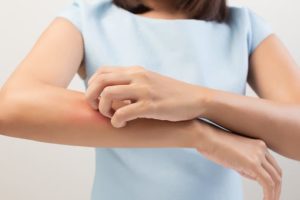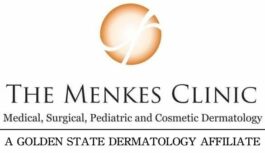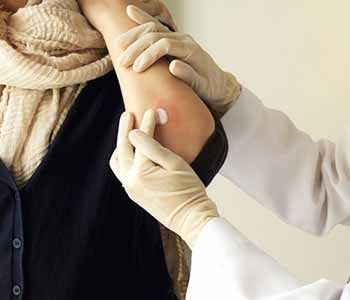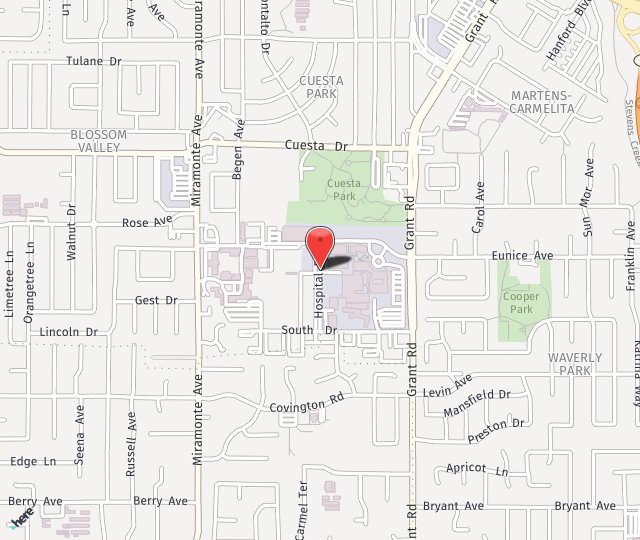
Contact with these allergens can result in an itchy, scaly rash that usually becomes chronic if not appropriately treated. Patients may also experience flares of their eczema in the absence of any identifiable trigger. Seasonal outbreaks are also commonly observed with worsening of the rash during the winter and summer months. Dial (650) 962-4600 to reach our Mountain View office if you have questions about Eczema or if you wish to determine whether you are a candidate for treatment!
Facts About Eczema
- Common skin condition
- Usually develops during childhood
- May persist in adults
- Genetic and environmental causes
Management of atopic dermatitis includes the liberal use of non-medicated emollients, prescription-strength ointments and creams as well as oral medications, and the knowledge of important routine skincare principles. We educate patients about skincare and help them to recognize potentially aggravating factors. In severe cases, we are able to use state-of-the-art therapies such as narrowband UV-B phototherapy, CellCept, cyclosporine, and Methotrexate.
What causes Eczema?
The causes of eczema are not fully understood. At this time, research points to a combination of genetic factors and certain triggers. It is believed that eczema may be influenced by an over-reaction of the immune system that results in inflammation in response to exposure to a particular substance. Studies have identified a link between the protein filaggrin and eczema. Filaggrin is involved in maintaining the skin's natural protective barrier. Without a strong barrier, the skin can easily dry out and become vulnerable to infection.
What are the different types of Eczema?
There are seven different types of eczema:
Atopic dermatitis
Atopic dermatitis can cause rashes anywhere on the body. Patches of skin may ooze, weep fluid and bleed when scratched, creating a risk for infection. With repeated scratching, the skin can become thick and hard. This is referred to as lichenification.
Contact dermatitis
Contact dermatitis involves itching, redness, and inflammation that gets triggered by some type of substance. That substance could be an irritant or an allergen. Examples of contact dermatitis triggers include metal zippers or snaps, nickel jewelry, soaps, detergents, and some fragrances.
Neurodermatitis
Neurodermatitis is an ongoing itch-scratch-itch cycle in which a person may uncontrollably scratch one or two itchy patches of skin. This less common type of eczema has been associated with the brain's reward center. When a person scratches, even unconsciously, the reward center lights up, as seen in brain scans.
Dyshidrotic eczema
Symptoms of dyshidrotic eczema include small blisters on the palms of the hands, soles of the feet, or the edges of the fingers. These tend to itch intensely when triggered.
Nummular Eczema
This type of eczema features scattered circular patches that itch and may ooze at times. The cause of nummular eczema is not entirely clear. Research has identified triggers such as dermatologic trauma such as burns, scrapes, or bug bites. People with nummular eczema also tend to have very sensitive or dry skin.
Seborrheic Dermatitis
This chronic form of eczema usually develops in an area of abundant sebaceous glands. These are the glands that produce oil. Areas on which seborrheic dermatitis may develop include the nose, scalp, and upper back. Flares can be triggered by chemical irritants like detergents and soaps, illness, hormonal changes, stress, and dry weather.
Stasis Dermatitis
This type of eczema is more common in adults with poor circulation or venous insufficiency in the lower legs. Venous insufficiency involves the pooling of blood in one or more veins. This happens because the valves in affected veins do not close properly and some of the moving blood refluxes backward in the vein. Venous insufficiency is also associated with varicose veins, so the two conditions may coincide.
It is possible to have more than one type of eczema at once. Each form of eczema has unique triggers and treatment requirements. Your dermatologist can help identify which type or types of eczema you may have and how to manage each.
How We Treat Eczema:
- Non-medicated emollient creams/ointments
- Prescription-strength ointments and oral therapies
- Educating patients regarding daily skincare
- Identifying environmental triggers
- Phototherapy (light treatment)
Our physicians are experts in prescribing appropriate treatments for eczema while taking into consideration each patient’s age, the severity of their skin disease, and their lifestyle. Eczema is a treatable skin condition in the vast majority of patients.
Dr. Soohoo is one of only a handful of Board Certified pediatric dermatologists in the Bay Area and is highly skilled in treating children with eczema. At The Menkes Clinic & Surgery Center, we welcome both pediatric and adult patients to come for a consultation to develop an individualized treatment plan to gain effective control of this chronic skin condition.
Contact our office at 650-962-4600 for your one on one consultation with one of our experienced dermatologists.
How can I manage the itch from eczema?
Managing eczema symptoms is largely a matter of preventing exposure to triggers and fortifying the skin's protective moisture barrier. Suggestions for managing eczema include:
- Identify triggers and avoid them.
- Bathe daily in warm water, not hot.
- Apply an emollient lotion with ceramides after bathing to lock in moisture.
- As needed, bathe using an oatmeal soap or soak.
- As needed to reduce intense itching, especially at bedtime, take an antihistamine.
- Apply an over-the-counter corticosteroid cream or ointment for mild itching.
- Use prescription eczema medication as directed by a physician.
- Use skin cleansers with low pH.
- Wear loose, breathable clothing.
Can Stress Trigger My Eczema?
Yes. Stress is one of the most common eczema triggers, and it can be difficult to identify simply because many people are accustomed to living stressful lives. It is assumed that the elevation in cortisol levels may be the direct trigger for itching and inflammation. To manage the symptoms of eczema, patients are encouraged to understand their stress triggers and develop skills to address stress in their lives. Breathing exercises, walks in nature, yoga, and meditation are examples of stress-management practices.
Can Foods Trigger My Eczema?
Yes. Some people with eczema may be triggered by certain foods. This can differ for everyone so it may be helpful to keep a food journal or write down what foods and beverages have been consumed prior to an eczema flare-up. Examples of common food triggers include cow’s milk, soy, gluten (in most bread, crackers, and packaged foods), nuts, eggs, fish, and shellfish.
Eczema affects everyone differently. One person’s triggers may not be the same as another’s. You might experience eczema symptoms at certain times of the year or in different areas of your body.
Can Eczema spread?
Yes. Eczema can spread simply because of the itch-scratch cycle that exacerbates inflammation and itching. If the skin cracks, bacteria may enter and cause the condition to spread. Patients may decrease the risk of eczema spreading across a larger area by avoiding scratching as much as possible. Treating flare-ups quickly can reduce itching, along with the chances of spreading.
Schedule An Eczema Consultation In Mountain View, CA!
Give us a call at 650-962-4600 or fill out our appointment request form if you wish to learn more about Eczema and the various treatment options offered at The Menkes Clinic. Our skilled physicians serve patients in Mountain View and the surrounding areas of California.



